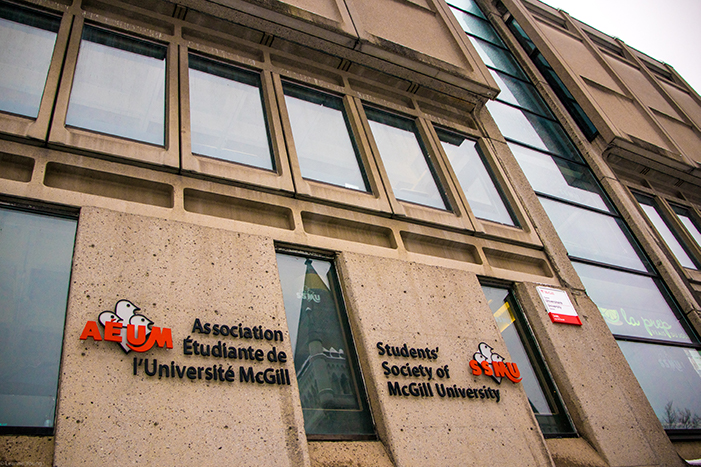On Jan. 20, the Students’ Society of McGill University (SSMU) Legislative Council held their first meeting of the winter semester, discussing several annual reports and announcements, including the AUS Town Hall on the return to classes, and approving five motions. One motion will require SSMU executives on SSMU’s Divestment and Demilitarisation Campaign Mandate to provide progress updates; another motion sought to create an anti-surveillance master plan to protect McGill students who, because of their anti-colonial activism, have been doxxed and harassed on websites such as Canary Mission and Campus Watch. This master plan would institute a SSMU anti-surveillance commissioner to lead an anti-surveillance committee under the Council.
During the question period, vice-president (VP) University Affairs Claire Downie spelled out how SSMU organized their campaign to facilitate a safer return to campus on Jan. 24, including measures such as making respirator-style masks available.
“On Monday we announced that we’re going to be providing respiratory-style masks on a pay-what-you-can basis to students who are especially vulnerable to COVID,” Downie said. “We’re hopefully going to be announcing details about this in the coming days.”
VP Finance Éric Sader engaged in several back-and-forths with councillors regarding president Darshan Daryanani’s continued absence. Sader told inquirers and the broader gallery that it is in the BoD’s “fiduciary duty to act in ways that benefit the company,” which includes, according to Sader, the “responsibility not to answer these questions” surrounding the president.
Councillors Ghania Javed and Yara Coussa then presented the Motion Regarding the Creation of an Anti-Surveillance Master Plan within the SSMU. Coussa spoke of public websites which blacklist and expose personal information about advocates and activists, including pro-Palestinian McGill students and staff, students involved in Uyghur, Tibetan, or Hong Kong liberation advocacy, as well as Muslim students since the enactment of Bill 21..
“These forms of intimidation and attacks impact students’ mental health, physical health, and discourage their involvement on campus,” Coussa said. “Some students have reported that it has prevented them from applying to leadership positions on campus [….] These examples […] highlight how students have been victims of racist surveillance.”
The motion, passed with 24 in favour and two abstentions, will mandate VP Internal Sarah Paulin publish a master plan by April 7, 2022 detailing how SSMU will help combat and end racist surveillance and doxxing at McGill.
Moment of the meeting:
During the announcement period, VP Finance Sader made a public apology to Councillors Coussa and Javed for his “unprofessional comments” toward them during the Nov. 25, 2021 Legislative Council meeting. Sader also noted that, going forward, it is important for him to acknowledge power dynamics at play, given his position as a white man speaking to two racialized women during the incident.
Soundbite:
“I think it’s important to point out that McGill Athletics and Recreation are not funded by the university […] and [are] not in a position to take a stand regarding divestment [….] It’s outside of the scope of McGill Athletics and Recreation. I just want to point out that what’s happening right now is students are losing out on services [….] Basically, Athletics and Recreation has their hands tied.”— Member of the gallery Chloe Parsons, U3 Education and chair of the Student Athletics Council, on how the SSMU moratorium on auxiliary fees impacts the McGill Athletics and Recreation facility services available to students.









